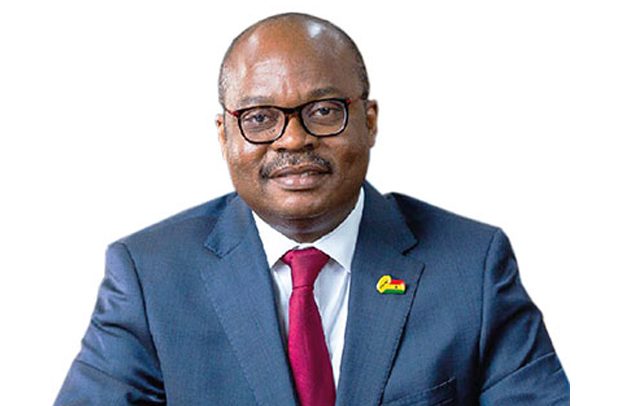
…intertwined markets make siloed policies untenable
By Ebenezer Chike Adjei NJOKU
Cross-border coordination among central banks in Africa has assumed greater importance as economies become increasingly interdependent and exposed to shared external shocks.
That was the key overriding consensus from the opening session of the two-day Pan-African Central Bank Governors’ Conference in Accra, jointly organised by the Bank of Ghana (BoG), Bank of England (BoE) and Foreign, Commonwealth and Development Office (FCDO).
The conference drew governors and deputy governors from more than 20 African central banks to consider how leadership, governance and collaboration are evolving in the monetary policy environment.
In his address, BoG Governor Dr. Johnson Pandit Asiama stressed that Ghana’s stabilisation journey provides a case for the value of credible policy execution and international cooperation.
He argued that because African financial markets are no longer insulated, central banks must move beyond national-only responses and embrace coordinated frameworks.
He noted that economic interdependence in Africa – through trade, capital flows and shared vulnerabilities – means that one country’s shock can quickly transmit to its neighbours, making coordinated policy responses essential.
“We operate in a context where volatility in one market can shift conditions across the region before sunrise,” he said.
“Stability demands that we act with speed but never haste and prudence but never paralysis. In today’s world, independence can no longer mean isolation,” Dr. Asiama added.
He noted that credibility and public trust now rank as high as technical competence in assessing central-bank performance.
He said central banks are “no longer judged only by the policies we set, but also by the trust we sustain”.
He drew attention to Ghana’s own recent recovery, which has seen inflation drop from a peak of 54.1 percent at the end of 2022 to 8 percent for October 2025 while international reserves have risen to over US$11billion and the cedi has appreciated by more than 34 percent against the US dollar since beginning of the year – noting that these were the effects of “discipline, transparency and credibility” that underpin effective central banking.
He argued that coordination is not only about harmonising instruments but also aligning communication and institutional frameworks.
“Monetary and fiscal authorities are like two drummers playing different rhythms, yet stability requires harmony,” he said.
The Governor recalled how provisioning liquidity, regulatory relief and dynamic policy responses during the COVID-19 crisis demonstrated competence but also the need for well-prepared, cooperative institutions.
The Governor emphasised that African central banks demonstrated notable resolve during the recent global inflation surge, with over 20 raising rates by an average of 750 basis points between 2022 and 2024.
“This was faster and sometimes braver than our advanced economic peers. That was credibility in action,” he noted.
A report by the Bank for International Settlements’ Financial Stability Institute published in November 2024 found that macro-prudential policy relaxations in sub-Saharan Africa during the COVID-19 pandemic helped to boost bank lending. This, the authors said, illustrated that coordinated financial-sector responses can support resilience during global shocks.
Meanwhile, research on Africa’s monetary-fiscal policy nexus shows the pandemic brought monetary and fiscal authorities into closer cooperation, though it also flagged risks of compromised central-bank independence if coordination is not handled carefully.
However, Dr. Asiama warned that beneath Africa’s economic progress lies persistent fragility. While growth is projected at 4.1 per cent in 2025 – above the global average – and inflation is easing from the 21 percent average of 2023, the continent still contends with high borrowing costs and fiscal strains “that can undo years of reform within months”.
On communication, Dr. Asiama argued that context-appropriate messaging is crucial for policy effectiveness.
“In our context, in Ghana transparency must wear local clothes,” he said, explaining that monetary policy communication must be grounded in local realities. For that reason, he added, a policy is only credible “when it makes sense to the woman selling tomatoes down the road”.
Dr. Asiama also highlighted the importance of collaboration with external partners, describing BoG’s long-standing relationship with the Bank of England as “transformational”. He said the partnership had strengthened BoG’s technical capacity and served as a model for institutional development and policy credibility across Africa.
He further called on African central banks to deepen peer-learning networks, data-sharing arrangements and interoperability of regulatory and payment frameworks in order to build regional resilience.
British High Commissioner to Ghana Dr Christian Rogg praised the BoG–BoE collaboration, noting that it reflects a shift in the UK’s engagement with Africa – from aid-driven support to partnerships based on shared expertise and institutional strengthening.
“This collaboration has evolved through some of the most turbulent economic years and stands as a model for regional cooperation,” he said.
Clare Lombardelli, Deputy Governor for Monetary Policy-Bank of England, said the Accra meeting builds on years of regional workshops aimed at strengthening governance and accountability across African central banks.
“Nothing beats strengthening the bonds between central banks at a time when global challenges are easier to respond to if we govern together,” she said.
The post Continental central banks must deepen collaboration – Governor appeared first on The Business & Financial Times.
Read Full Story






















Facebook
Twitter
Pinterest
Instagram
Google+
YouTube
LinkedIn
RSS